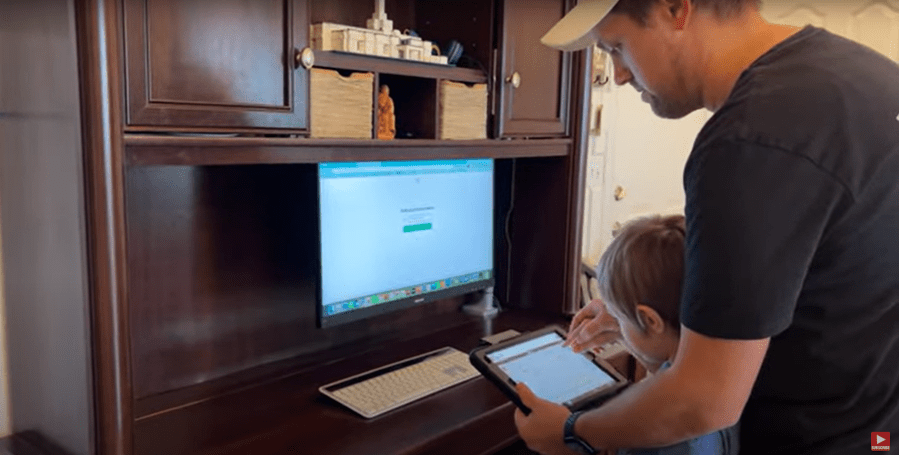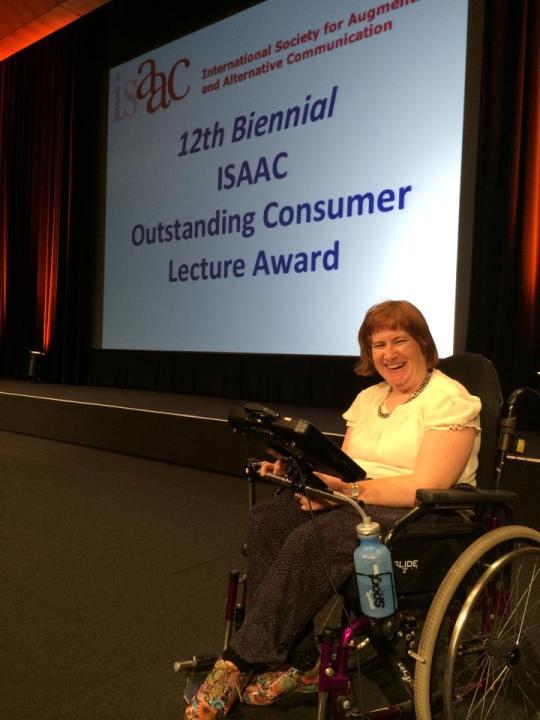ChatGPT ‘levels playing field’ for people with disabilities
Testing on staging11
(NewsNation) — Seven-year-old Ezra pushes the icons on his tablet — an essential tool for his independence — and a computerized voice the tone and pitch of a little boy speaks out: “I want cheese, please.”
“I was in tears when we picked what type of voice would be his voice,” said Holly Anderson of her son who has autism and does not speak.
The tablet allows Ezra to express his needs or preferences through a software that weaves pictures into sentences. Communicating this way can be slow and arduous — but has the potential to be completely revolutionized by a new artificial intelligence-powered chatbot, ChatGPT.
The advent of an advanced AI that seemingly can write like a human has led to fears of cheating, concerns over plagiarism and cries that it’ll be the end of critical thinking.
Yet within the disability community, the chatbot’s free and open-source nature has generated a lot of hope and excitement — particularly that this new technology gives people the ability to overcome barriers independently.
Looking ahead to the teen years, that could mean help writing a resume and cover letter, or asking for advice on how to talk to a girlfriend, said Anderson, who runs a YouTube channel on parenting kids with autism with her husband Adam.
“If he has the availability to go on ChatGPT, on an AI system, and ask a question and figure it out for himself, then he can be more independent in his life,” she said. “In so many ways, especially for people who have been disadvantaged in the past with a lot of limitations … this totally levels the playing field.”

Adding the “Fluff”
A slew of artificial intelligence programs have gone mainstream this year — from apps that can paint you a profile picture, to browser extensions that summarize search engine results into a paragraph.
But ChatGPT has stood out, in part due to its simple interface and extremely advanced language framework. It can distill the vast information of the internet into a seemingly human conversation, offering social awareness and even wisdom.
“It’s the first chatbot that’s enjoyable enough to speak with and useful enough to ask for information,” said Big Technology newsletter writer Alex Kantrowitz. “It can engage in philosophical discussions and help in practical matters. And it’s strikingly good at each.”
The way ChatGPT mimics human polite conversation excites Fiona Given, a lawyer and research associate at the University of Technology Sydneyin Australia. She uses a speech device due to Cerebral Palsy and only averages about 18 words a minute.

“Due to the effort that is required of me to compose my messages, I economize on words,” Given said. “This results in me only telling half a story or sounding curt because I leave out the nice fluffy parts of language. This can lead to breakdowns in communication or even breakdowns in relationships.”
People playing with ChatGTP have already demonstrated its ability to add that “fluffy language” into written words, like emails or school reports. Connecting the technology into a text-to-speech device is an obvious next step, Given said.
“It could also help me provide detailed instructions to direct support workers such as how to assist me in the shower … how to cook my favorite dish,” Given said. “Often by the time I have typed my message, the conversation has moved on. AI technology could help me be a more active participant.”
Hurdles Ahead
Although ChatGPT is currently free and open-sourced, it still would require a developer to apply it to current technology on the market.
That would likely make it more expensive or create hurdles to access — like having to go through insurance, said Kara Ayers, of the University of Cincinnati Center for Excellence in Developmental Disabilities.
Ayers is also a parent and uses a wheelchair. Banning AI software from schools, jobs or government offices outright is short-sighted, she says, predicting it’ll become as indispensable as search engines.
That means it’s essential for developers to consider how people with disabilities will use it.
“People assume … that there’s like this brigade of people waiting to help (people with disabilities),” she said. “We’re not there yet. And so until we get there, I just potentially see ChatGPT as a bridge.”
Still, the nature of that bridge gets at a core question of authorship: What does it mean to co-create with a computer that thinks faster and knows more than you? What does it mean when the person reading or viewing that creation can’t tell the difference between human hands and keystrokes?
“Absolutely (ChatGPT) would increase my productivity,” Given said, adding the world often misses out on the unique insights and experiences of people with disabilities. “But it’s really important that the person with a disability edits (the output) so it is our own words.”
